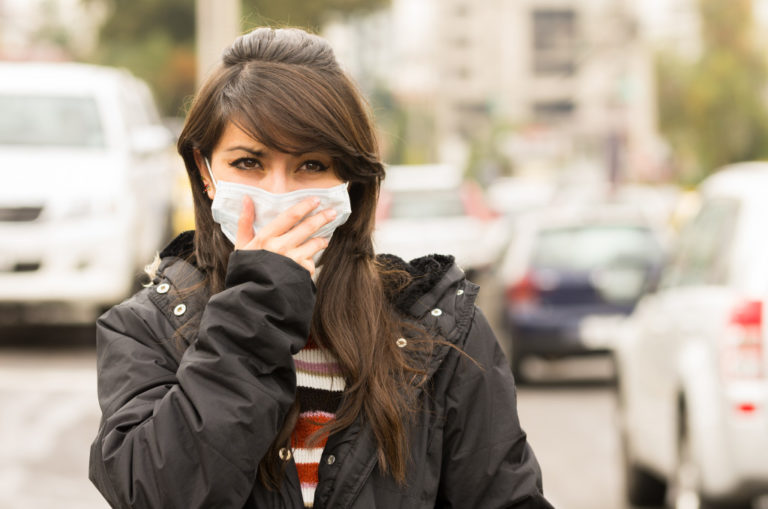The level of air pollution is exacerbating in major cities around the world. The problems occur when the amount of harmful gases, particulates, and organic compounds are released due to natural phenomena or, more often, man-made activities. Vehicular traffic, factories, construction, and wildfires are some of the most common causes of air pollution, especially in urban areas.
Exposure to air pollution can lead to health issues. It may exacerbate existing respiratory conditions and increase a person’s risk of illnesses, including cancer and heart disease.
On the skin, which is the largest and the most exposed organ of the body, air pollution can wreak havoc, too. The substances that are released from a car’s exhaust, from cigarette smoke, and from other sources are causing damage to the skin.
Here are the skin issues that come from air pollution.
Premature Aging
Your skin changes as you grow older. The smoothness and suppleness that you enjoyed in your youth disappears. At a certain age, you have no choice but to accept the fact that, for the rest of your life, you will have to deal with sagging and wrinkling skin.
These, of course, can be remedied through cosmetics procedures. An aesthetic clinic can provide you with options to hydrate your skin which will prevent cracking and plump areas where lines have started showing.
However, people who are constantly exposed to air pollution might have to deal with these problems earlier. Premature skin aging may be caused by harmful particles floating around outdoors.
One study proved the link. Researchers assessed the skin of women living in places that are heavily polluted. They found that wrinkles and sunspots — two skin conditions common among older adults — among the participants.
Further studies have discovered that pollutants activate an enzyme that quickly degrades collagen, the protein responsible for the elasticity and overall structure of the skin.
Free radicals, a term that you probably already have heard of from skincare ads, also cause premature skin aging by stealing electrons off of proteins, cell membranes, and DNA. These molecules are derived from normal metabolic processes as well as from external sources like pollutants in the air.
Acne
Many young people experience acne because of the excess sebum, a natural oil, on their skin. The sebum functions as a lubricant for the skin, but it is also very effective in trapping dead skin cells, bacteria, and pollutants. As a result, the pores get clogged and new pimples start to pop up.
The free radicals generated by exposure to air pollution will also exacerbate acne among young people.
One study already found evidence that more people get acne in places where the levels of ambient air pollution are elevated. Flare-ups happen mostly when the quality of air has deteriorated so badly.
Another study, this one from China, found that those who are living in cities produce twice as much sebum as those who are living in rural areas where the air quality is healthier.
Dull Skin
Your skin is fine but, for some reasons you cannot pinpoint, it looks unhealthy. You are missing a vibrant radiance that you get after a facial or back when you were younger.
Dull skin is caused by a lot of factors, including aging, the build-up of dead skin cells, lack of hydration, and, of course, air pollution.
Pollutants are up to 40 times smaller than the pores on the skin. It is common for these particles to be stuck and accumulate deep into the skin, making it look sallow.

Skin Cancer
Long-term exposure to air pollution is scary because it leads to an increased risk of certain cancers, including one that affects the skin.
Skin cancer is one of the most common cancers in the world. Globally, one in three cancers diagnosed is skin cancer.
The incidence of skin cancer is increasing every year partly and the worsening quality of air in most places is partly to blame.
One study found a strong link between air pollution and skin cancer. Vehicles release emissions containing polyaromatic hydrocarbons which, researchers found, act as a carcinogen. On the skin, it reacts with the DNA, leading to the abnormal growth of cells, forming a tumor.
Air pollution is bad for your overall health, but the skin is the part of your body that is most affected. It is regularly exposed to air pollution whenever you are outdoors. Reducing your activities when the quality of air outside is bad can minimize skin conditions caused by air pollution.

